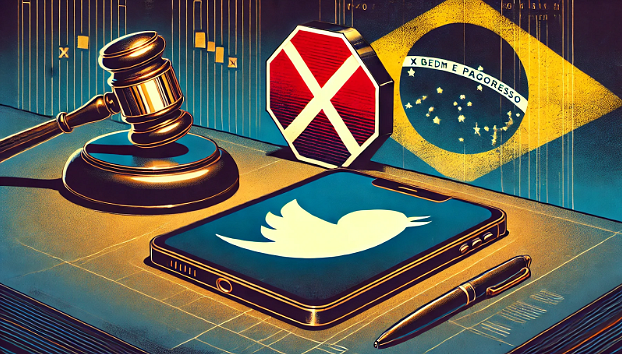Brazil’s Supreme Court Upholds X Ban

Brazil's Supreme Court has unanimously upheld the ban on X, the social media platform formerly known as Twitter. The ruling, which has sparked global attention, centers on X’s failure to comply with Brazil's legal requirements, including the appointment of a local representative to address platform-related legal issues, as reported by The Guardian.
On September 2, Brazil’s Supreme Court reiterated its stance to suspend X in the country after the platform failed to meet a court-ordered deadline. Justice Flávio Dino, one of the five justices involved, argued that the company "considered itself above the rule of law."
The decision followed X's repeated non-compliance with orders to block misinformation-spreading accounts. Dino further warned that “economic power and the size of one’s bank account do not produce some strange immunity from jurisdiction,” a sentiment that echoed concerns about big tech platforms circumventing national regulations.
Elon Musk, the owner of X, responded defiantly to the ban, labeling Brazil’s Supreme Court and its decisions as part of a "woke authoritarian crusade," accusing it of undermining free speech. He expressed his frustration over what he sees as politically motivated censorship, targeting both the judiciary and President Luiz Inácio Lula da Silva's left-leaning government.
A key aspect of the ruling was the court’s prohibition of the use of Virtual Private Networks (VPNs) to bypass the ban. Justice Alexandre de Moraes, who ordered the original suspension, has imposed fines of 50,000 reais (about $8,910) per day on anyone caught using VPNs to access X. However, this has hardly discouraged Brazilians, as our recent reports suggest a major uptick in VPN demand after the ban was put in place.
The conflict escalated further with Musk's satellite internet company, Starlink. Initially, Starlink informed Brazil’s telecommunications regulator, Anatel, that it would not block X in Brazil, defying the court's orders. However, according to Axios, Starlink eventually reversed its stance, stating it would comply with the court’s ruling to block X in Brazil, citing “the illegal treatment of Starlink in freezing of our assets.”
Musk’s battle with Brazil’s legal system highlights the broader issue of tech giants’ accountability to national laws. X, which had over 21 million users in Brazil, has been a crucial part of the digital ecosystem. However, as BBC News pointed out, alternatives like Bluesky have already seen a surge in new users since the suspension of X. Even President Lula himself has shifted to Bluesky, highlighting how influential the ban could be in shaping the future of social media in Brazil.



Please, comment on how to improve this article. Your feedback matters!